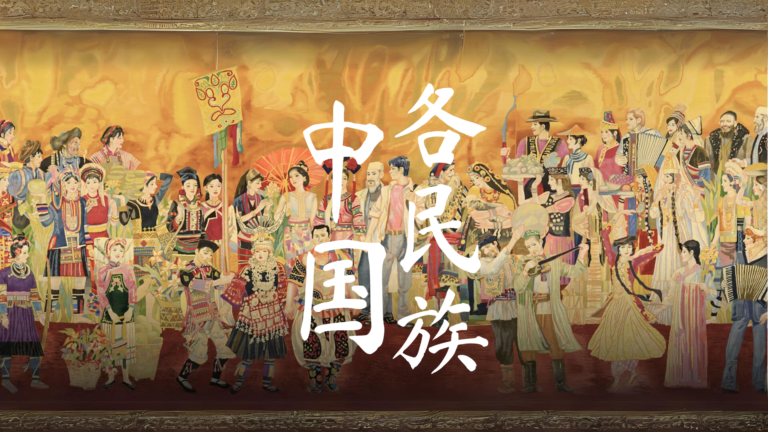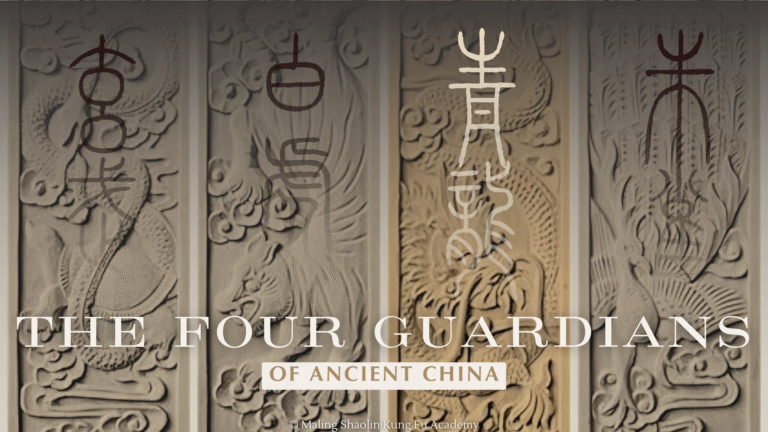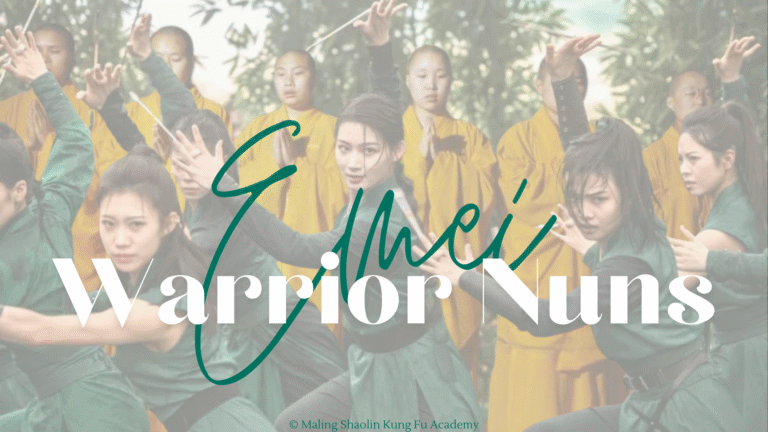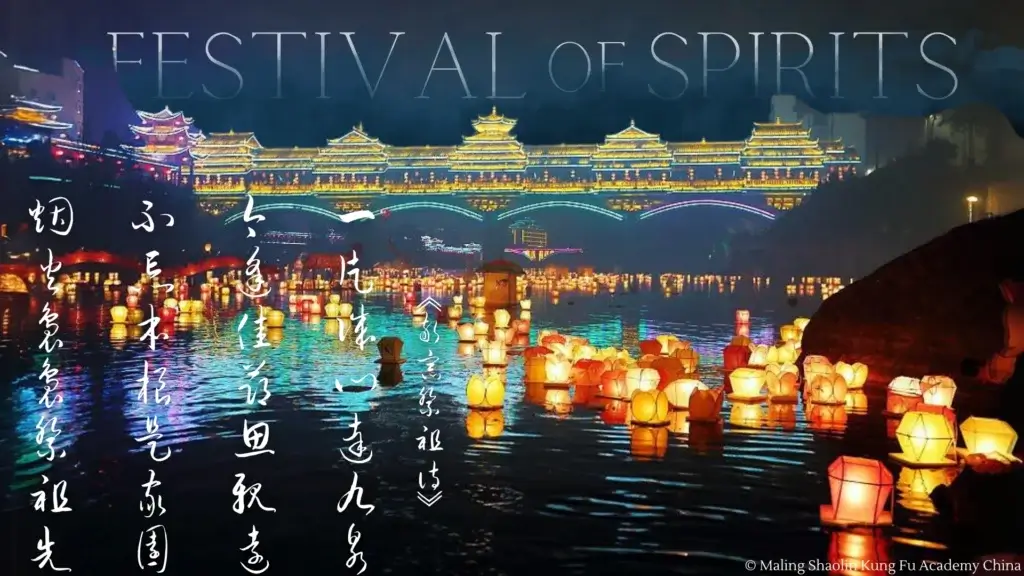
The Hungry Ghost Festival [Zhong Yuan Jie (中元节)], also known as the Chinese Ghost Festival or Spirit Festival, is a traditional Chinese festival held on the 15th night of the seventh lunar month. For 2024, this falls on Sunday, August 18, but festivities and rituals are continuously carried out throughout the lunar month (August 4 to September 3). This festival, deeply rooted in Chinese culture and religious beliefs, is dedicated to honoring and appeasing the spirits of deceased ancestors and wandering ghosts. The festival is a significant occasion in Chinese communities worldwide, marked by various rituals and customs aimed at ensuring peace and prosperity. In this blog post, we delve into the origins, traditions, and modern-day significance of the Hungry Ghost Festival.
Origins and Significance
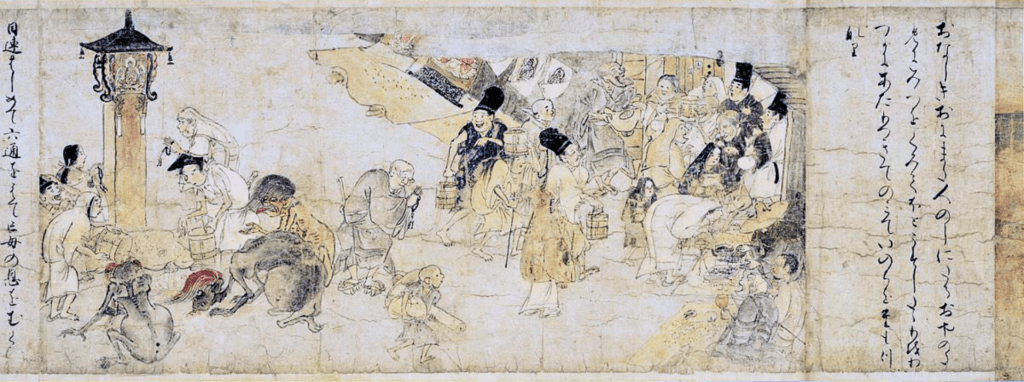
The Hungry Ghost Festival’s origins are intertwined with Buddhist, Taoist, and Chinese folk beliefs. According to Chinese mythology, the seventh lunar month, also known as Ghost Month, is when the gates of the underworld open, allowing spirits to roam the earth. These spirits include the ancestors of the living, who return to visit their descendants, and “hungry ghosts”—spirits who have not found peace due to improper burials, lack of descendants to honor them, or wrongdoings in their past lives.
The festival is based on the belief that these spirits need to be appeased with offerings and rituals to avoid misfortune and ensure their well-being in the afterlife. It is also an opportunity for the living to show filial piety and respect for their ancestors, reinforcing the importance of family bonds and cultural heritage.
The incense smoke curls in honor of ancestors,
Never forgetting our roots is the foundation of our home.
On this auspicious day, we remember our distant kin,
Our heartfelt reverence reaches the underworld.烟火袅袅祭祖先,
《敬宗祭祖诗》(Jìng zōng jì zǔ shī), A Poem of Ancestral Worship
不忘本根是家园。
今逢佳节思亲远,
一片诚心达九泉。
Traditional Practices and Rituals
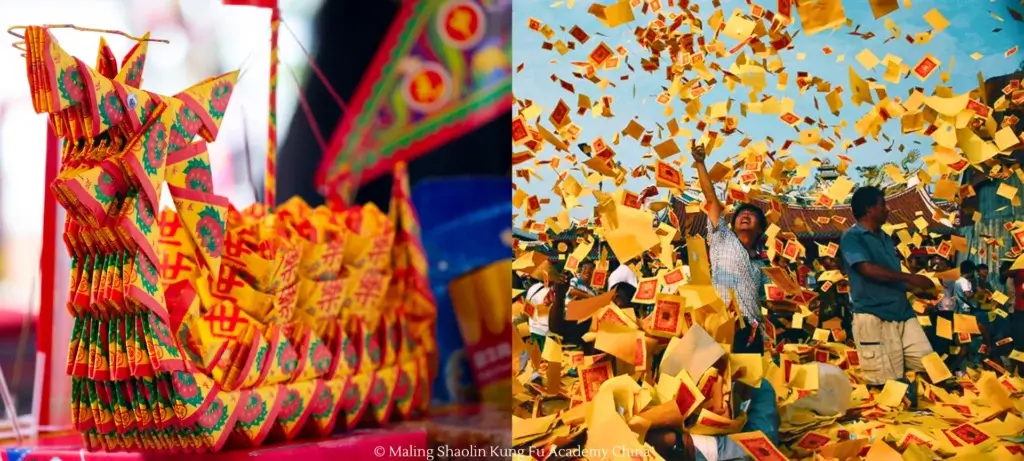
The Hungry Ghost Festival is rich in rituals and customs designed to honor and appease the spirits. Some of the most common practices include:
- Offering Food and Incense: Families prepare elaborate meals and place them on altars as offerings to their ancestors and wandering spirits. Incense sticks are burned to guide the spirits to the offerings and to create a sacred atmosphere.
- Burning Joss Paper: Joss paper, also known as “hell money,” is burned as a symbolic offering to provide the spirits with money and other necessities in the afterlife. This practice is believed to ensure the spirits’ comfort and prevent them from causing trouble.
- Releasing Water Lanterns: In some regions, people release floating water lanterns on rivers and lakes to guide lost spirits back to the underworld. The lanterns are often inscribed with the names of deceased family members and prayers for their peace.
- Performing Chinese Opera and Street Performances: Outdoor performances, including Chinese opera and puppet shows, are staged to entertain the spirits. The front rows of seats are left empty for the ghosts to watch the performances.
- Feeding the Hungry Ghosts: Special ceremonies are held to feed the “hungry ghosts” who have no living descendants to care for them. These ceremonies include chanting prayers, making food offerings, and burning incense.
- Avoiding Certain Activities: During Ghost Month, people avoid activities that are considered risky or unlucky, such as moving house, starting new businesses, or swimming. These precautions are taken to avoid attracting negative attention from wandering spirits.
Modern Celebrations and Cultural Significance
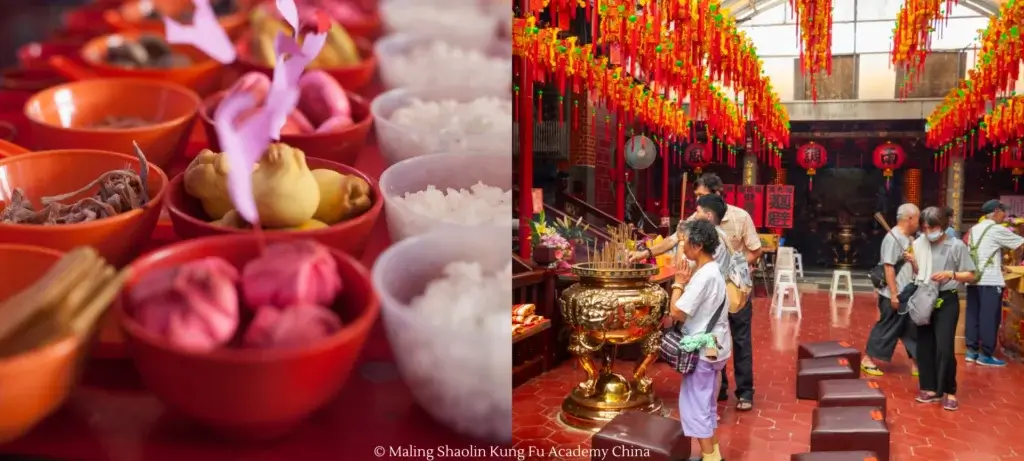
In contemporary times, the Hungry Ghost Festival continues to be a vital part of Chinese cultural and religious life. While some traditional practices have evolved, the essence of the festival remains intact. Modern celebrations often include community events, educational programs, and cultural exhibitions that highlight the festival’s significance and traditions.
In urban areas, large-scale ceremonies and public offerings are organized by temples and community groups, attracting crowds of participants and spectators. These events serve as a reminder of the festival’s importance and provide an opportunity for people to come together and honor their heritage.
The Hungry Ghost Festival also emphasizes the values of filial piety, respect for the deceased, and the interconnectedness of the living and the dead. It reinforces the belief that the well-being of the living is linked to the peace of the spirits and that honoring one’s ancestors is a duty that transcends generations.
Samhain VS Zhong Yuan Jie
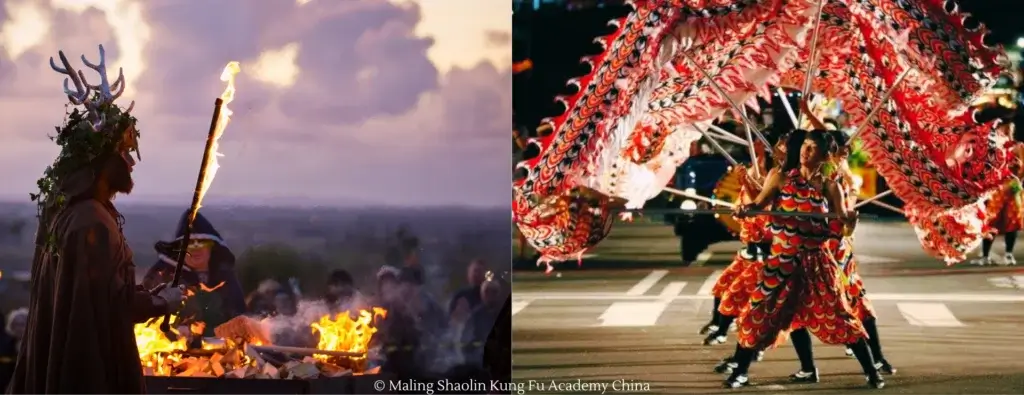
The Hungry Ghost Festival (Zhong Yuan Jie) shares some similarities with the Celtic tradition of Samhain, particularly in the way both festivals honor the dead and acknowledge the presence of spirits. During these times, it is believed that the boundary between the living and the spirit world is thinner, allowing spirits to roam the earth. Both traditions involve making offerings to appease these spirits—whether it’s food, joss paper, and incense during the Hungry Ghost Festival, or leaving out food and treats during Samhain. However, the two festivals differ in their cultural and religious contexts. The Hungry Ghost Festival, rooted in Chinese folk religion, Taoism, and Buddhism, focuses on ancestor worship and ensuring the well-being of spirits in the afterlife. In contrast, Samhain, which marks the end of the harvest season and the beginning of winter, has evolved into Halloween in many Western cultures, with a stronger emphasis on festive activities. While they originate from different traditions, both festivals emphasize respect for the dead and the importance of rituals to maintain harmony between the living and the spirit world.
Conclusion
The Hungry Ghost Festival is a profound and meaningful celebration that reflects the rich tapestry of Chinese culture and religious beliefs. It is a time to honor the spirits of the deceased, express gratitude to ancestors, and ensure harmony between the living and the dead. As the gates of the underworld open each year, the rituals and customs of the Hungry Ghost Festival serve as a bridge between worlds, connecting families, communities, and the spiritual realm. Through these practices, the festival continues to preserve and pass down the values and traditions that have shaped Chinese culture for centuries.



